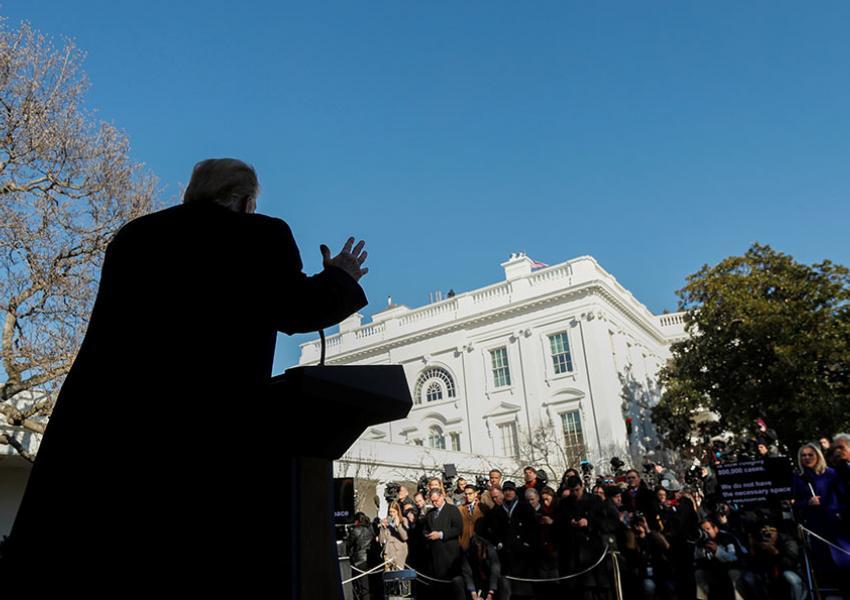
Will the US Succeed in Creating an Alliance Against Iran?
After the inaugural of Donald Trump as the US president, American foreign policy, especially with respect to the relations with Tehran, has done a 180-degree turn. This led to the president declaring that containing threats posed by Iran is one of the main priorities of the American foreign policy. This gained momentum when Mike Pompeo was appointed as the Secretary of State. At Davos economic forum, he talked about their campaign to create a global alliance against the Iranian regime and for supporting Iranian people.
Pompeo had announced the establishment of a regional coalition to fight ISIS and the Islamic Republic of Iran on January 7th before a trip to the Middle East. A conference will be held on February 13th and 14th in Warsaw, Poland to discuss the Middle East. It is believed that this event is mostly concerned with the US campaign for maximum pressure on the Iranian regime. It is symbolically significant that Poland will host this meeting; Poland has expressed interest to name a military base ‘Fort Trump’ after the American president in the middle of all the international oppositions.
Fort Trump: A Reward for the Host
The Polish government, which is wary of Putin’s expansionist agenda, recently announced that if the US approves of building a military base there, it would be named Fort Trump. Although Trump’s ‘America First’ policy should not show friendliness to this proposition, it is estimated that Trump will agree with a symbolic base in Poland with the limited American presence. Trump, who is coming from the popular television industry, could not resist the idea of a military base holding his name in a country where Trump is the most popular foreign politician. The right-wing Law and Justice government in Poland is very much in line with Trump administration in terms of issues such as being critical of the liberal values, globalization, open door policies, etc. The agreement to build this base can be a reward for Poland’s hosting the conference against the Iranian regime in Warsaw.
Anti-Iran Block in Eastern Europe
Iran’s destructive behavior in the region helps strengthen the anti-Iran block, which the US administration is determined to create.
The first front of this block is made of Israel whose superior military and economic power has been threatened by Tehran’s agenda to ‘wipe out Israel of the maps’. The last of this kind of threats were expressed by Hossein Salami, deputy IRGC, who said: “Iran’s strategy is to remove Israel from the global geopolitics”. Israel has not been idle facing these threats. Having been supported by the US, they recently started cleaning Syria of Iranian militias and their proxies.
The second front of this block includes Arab states with Saudi leadership. The Shia expansionism of the Islamic Republic has added fuel to the existing sectarian gaps in the region and created this block. What’s more, Iranians attacked the Saudi embassy in Tehran and took advantage of their pilgrims in Mecca against Saudis. Mike Pompeo’s travels to the region helped bring Arabs and Israel together on the subject of a mutual enemy, Iran.
The third block which seems likely to be encouraged by Trump’s team is Eastern Europe. Western European states, including the UK, France, and Germany, have taken a malign approach toward Iran’s regime. While they criticize the regime for its regional interferences and human rights abuse, they try to keep their trades intact. Eastern Europeans, on the other hand, do not have serious trade ties with Iran.
The other point being that these countries are returning to their older authoritarian systems despite the membership in the union. Eastern European countries, including Poland, are now known for their opposition to Muslim migration, being anti-immigration, and contradicting European policies, especially regarding human rights. These are their synergy with the American administration. They do an insignificant amount of business with Iran, so they can easily align themselves with the US. They are viable candidates for joining Trump’s administration in this alliance against the Iranian regime.
However, it is unlikely that the Warsaw meeting will be able to establish a global alliance against the Iranian regime, as Trump administration wishes. Unfortunately, the current American government has not done well in creating global coalitions, leveraging international institutions, but on the contrary, they have pulled out of some important international treaties and weakened the UN. Nevertheless, if the goal is to have Eastern Europe join Arab states and Israel in this alliance, the chance of success is very high.
It is expected that Visegrád countries, Poland, Hungary, the Czech Republic, and Slovakia, with their right-wing governments, will be willing to join this alliance and this will probably be the most important achievement for Trump’s team in Warsaw.
The creation of this third block will facilitate the American administration’s attempts to amp up the pressure on the Iranian regime on the international scenes and will put more economic and political stress on Tehran. It will also neutralize the Western Europeans’ approach toward Iran.









